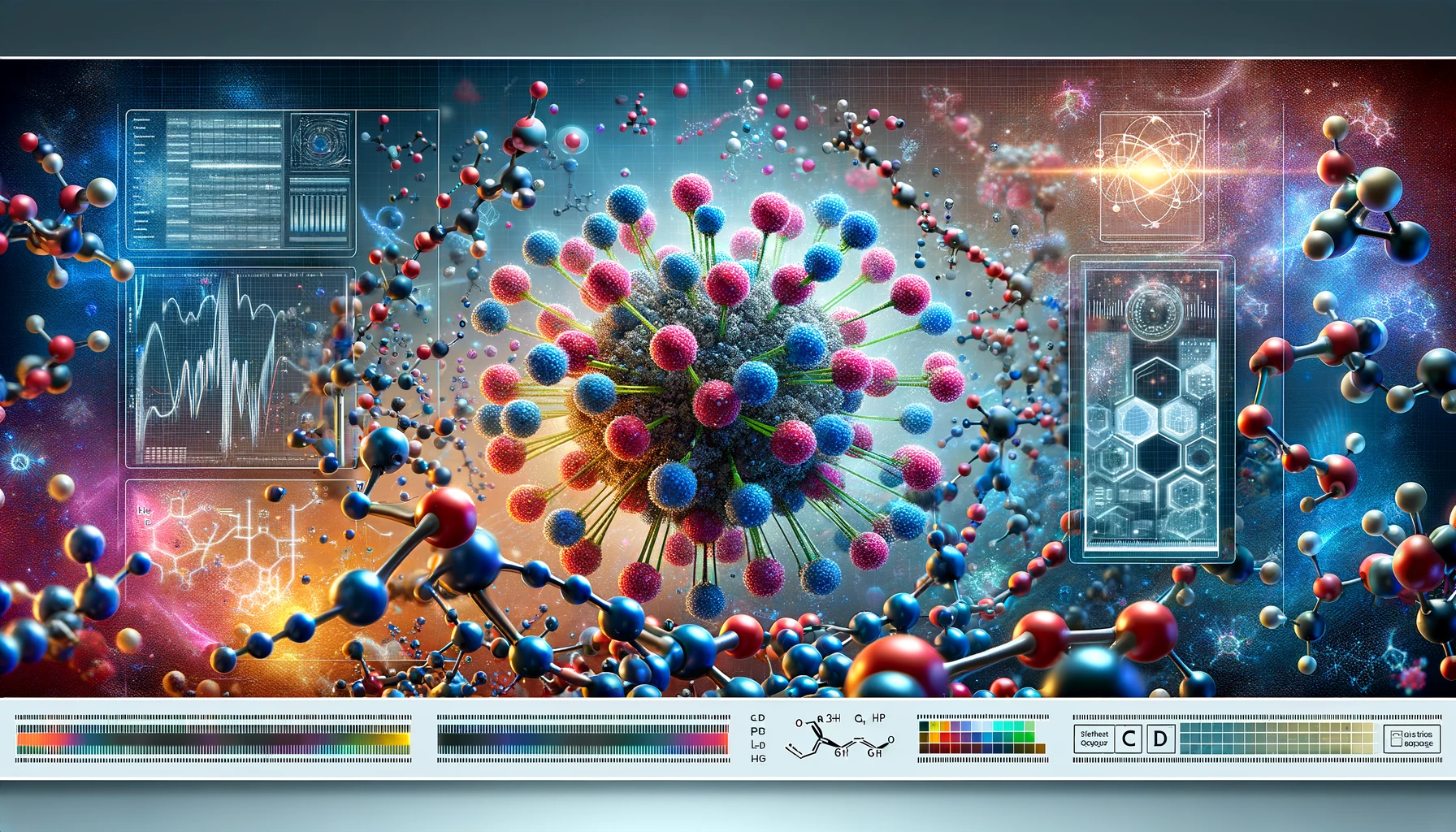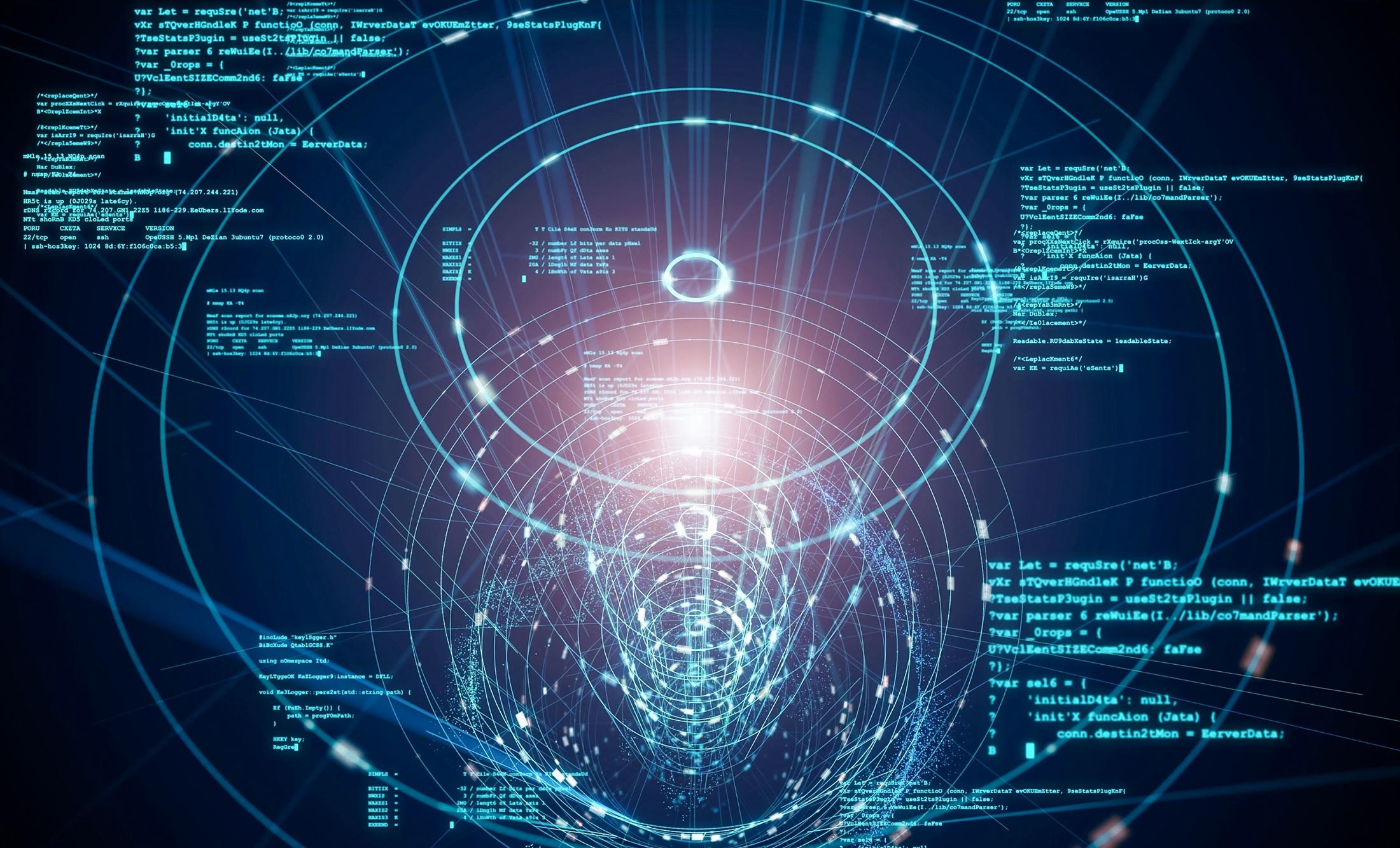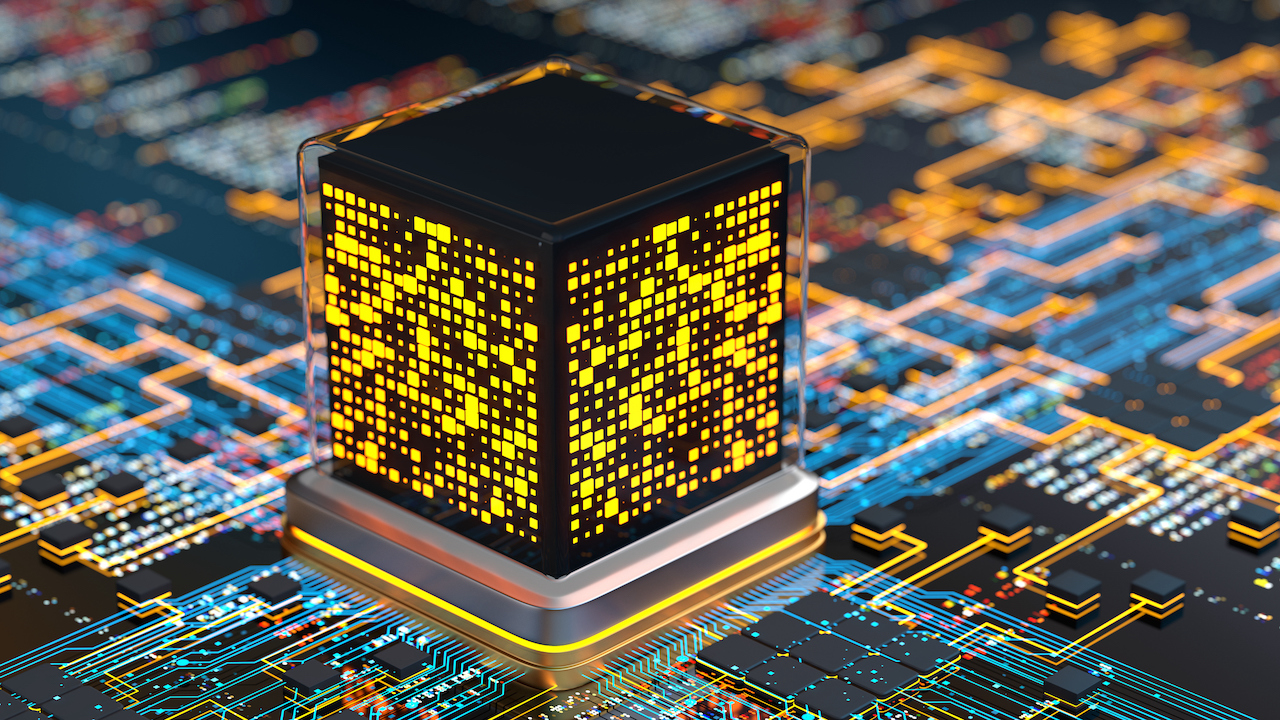Archive
Supercomputing in science
 | 9 Apr 17:00 | Zvedavá umelá inteligencia MATEJ PECHÁČ Faculty of mathematics, physics and informatics, Comenius University Zvedavosť, ako druh motivácie, je jedným zo základných fenoménov vyskytujúcich sa u živočíchov s vyššou kogníciou. Poháňa a riadi ich správanie tak, aby boli naplnené ich potreby na rôznej úrovni. Je základnou vlastnosťou, ktorá zabezpečuje neustály vývoj jedinca a vedie k jeho zdokonaľovaniu. Na tejto prednáške si ukážeme, ako formalizovať zvedavosť / motiváciu a ako ju pridať k AI agentom. Zároveň na jednej z veľmi ťažkých úloh v oblasti rozhodovania dokážeme, že pridanie zvedavosti výrazne pomôže s jej riešením. |
 | 12 Mar 17:00 | Atomistický pohľad na biopolyméry použitím HPC ZUZANA BENKOVÁ Ústav polymérov SAV, v. v. i. Ako je možné zistiť, či sa COVID alebo iné vírusy môžu prenášať cigaretovým dymom? Ako je možné pomocou polymérov zabrániť nežiadúcej imunitnej odpovedi organizmu? Pomocou molekulovo-dynamických simulácií využitím HPC je možné študovať biochemické javy na atomistickej úrovni a vysvetliť tak mnoho experimentálnych pozorovaní, predpovedať nové javy a procesy alebo správanie sa biopolymérov, ako aj simulovať podmienky nedostupné experimentu. |
| 7 Dec 17:00 | Modern technologies and new challenges in automatic speech processing MARIÁN TRNKA Institute of Informatics SAS v.v.i. The lecture introduced the use of automatic speech processing in several areas. The speaker explained what tasks are typical for different areas and also what algorithms and data are used to solve them. | |
 | 22 Nov 17:00 | Learning about geodynamic processes and the structure of the Earth using geoscientific data modeling
JÁN VOZÁR Institute of Earth Sciences SAS, v.v.i. During the lecture, the participants learned what geosciences are and what their contribution is to learning about the Earth. The speaker explained the principles of some geophysical methods that are used to model individual parameters of the Earth. |
 | 7 Dec 17:00 | Quantum computing in practice ZORA HOLLÁ IBM Global Markets – Ecosystem The presentation briefly summarizes what is needed for quantum computers to be used in practice. |
| 22 Nov 17:00 | Quantum complexity and simulations DANIEL NAGAJ National Center for Quantum Technologies We will discuss when and where it makes sense to use quantum computing, and which problems and systems will be difficult to calculate even on quantum computers. | |
| 8 Nov 17:00 | Quantum programming DANIEL REITZNER VTT Technical Research Centre of Finland We will talk about how current quantum processors are doing from a practical and technical point of view, and how it fits into the field of high-performance computing. | |
| 18 Okt 17:00 | Quantum computing and algorithms MÁRIO ZIMAN National Center for Quantum Technologies You will learn how we can theoretically apply quantum rules to calculations. | |
 | 4 Okt 17:00 | An introduction to the physics of quantum computing VLADIMÍR BUŽEK National Center for Quantum Technologies During the lecture on Introduction to the Physics of Quantum Computing, the speaker explained what the rules are that are used when talking about quantum computing and how they relate to the physical properties of quantum systems. |
| 24 May 17:00 | Natural and artificial intelligence TOMÁŠ HROMÁDKA Institute of Neuroimonulogy SAS What are the similarities and differences between the intelligence of the biological system itself and the artificial intelligence? The effort to model the processes taking place in the brain was one of the inspirations for the development of artificial intelligence. We will talk about how information is processed in the living brain, the extent to which such artificial intelligence inspiration is usable and justifiable, and where the two types of intelligence differ. | |
| 10 May 17:00 | Current problems of reinforcement learning MICHAL CHOVANEC Tachyum Reinforcement learning - what it is and how it works, including demonstrations. The main points of the lecture was key achievements: Atari, GO, Hide and seek and demonstrations of deep reinforcement learning and AlphaGO. The problem of exploitation: rare rewards, such as in roles: Montezuma’s revenge, Hide and seek. We examine the state space as "effective." | |
| 26 Apr 17:00 | Use of ML / AI for applications in chemistry - potential drugs on Covid-19 MARIÁN GALL COO SAS - Computing Centre How can we transform the structure of molecules into a form that neural networks understand? In this lecture, we want to summarize our efforts to replace the computationally expensive "docking" of molecules into the cavity of a target protein by machine learning and neural network methods. The target protein under study is 3CLpro SARS-CoV-2 (6WQF), which plays a key role in SARS-CoV-2 virus replication. How successful are these methods in preselecting large drug databases to select potential drugs for covid-19? | |
| 12 Apr 17:00 | Introduction to applications of complex calculations in medicine ZUZANA ČERNEKOVÁ, PETER BLUSKA Department of Computer Graphics and Vision, Department of Applied Informatics FMFI UK, Rádiológia s.r.o. In medicine, in recent years, observing the exponential growth of data and their processing requires increasingly sophisticated systems. The first part of the presentation outlined the needs and problems of modern medicine with emphasis on the field of radiology. In the second part we will get acquainted with the way of using neural networks to develop algorithms recognizing diagnoses in radiological images. | |
| 29 Mar 17:00 | Deep learning and its basic applications for computer vision ANDREJ LÚČNY Department of Computer Science FMFI UK When we use some model of deep learning, it is almost impossible to understand how and why it works based on its architecture. To do this, we need to know the history of how and through what versions the researchers worked on the given architecture. In the lecture we will summarize the basic milestones of this history, starting with the perceptron and ending with the first successful deep neural networks. | |
| 15 Mar 17:00 | Introduction to artificial neural networks and evolutionary algorithms IVAN SEKAJ Department of Robotics and Cybernetics, FEI STU The presentation defines the terms biological and mathematical neuron, neural networks and their learning, selected architectures of artificial neural networks (UNS) and UNS applications, neuromorphic computing technologies, evolutionary algorithms (EA), genetic algorithm, bio-inspired algorithms, parallelization of EA and HPC and briefly explain their principles. | |
| 1 Mar 17:00 | Use of HPC in operational weather forecast in Slovakia JOZEF VIVODA Slovak hydrometeorological institute SHMU has been operating HPC since 2004. The primary application is the ALADIN model, developed within the international consortia ALADIN and currently ACCORD. This application contains hydride parallelism (combination of OpenMP, MPI) with the ability to set the length of the vector of internal cycles, so it is suitable for vector and scalar architectures. | |
| 15 Feb 17:00 | Modelling of 2D systems properties using the Quantum Monte Carlo methods IVAN ŠTICH Institute of Physics SAS Prof. Štich is a partner of the TREX CoE - the European Center of Excellence in Exascale Computing (Horizon 2020 project). The lecture is focused on quantum Monte Carlo computational methods, for which the Nobel Prize in Physics was awarded in 2020 and which are well suited for the exascale computing. You will see a demonstration of calculations that required 30 million core hours to run. | |
2021 | ||
| 7 Dec 17:00 | Federated distributed computing Ladislav Hluchý Institute of Informatics SAS Thanks to powerful servers and large data storages, a significant progress can be seen in distributed computing, where the performance achieved is very high (dozens of PFLOPS). In a not-too-distant past we saw the computing clusters being built from personal computers, progressing to powerful servers and data storage units later on. Since 2000 there was a boom of building grid-based distributed infrastructures with distributed operation systems. With the birth of cloud technologies, distributed computing has taken on a new dimension. IT companies such as Google, Amazon, Microsoft, IBM, ATOS brought their technologies to market. The federated cloud infrastructures were introduced, with the support of the European Commission, to avoid the so-called vendor lock-in situation. The individual national cloud infrastructures can join the federation, allowing researchers to run their calculations on an infrastructure that does not impose technological constraints. | |
| 23 Nov 17:00 | Short guide to software parallelization Jaroslav Suchánek Biomedical Research Center, SAS The lecture will highlight few of the most important aspects of example programs and analyses published on the webpage http://www.jsf.name/lectures.html and https://chipster.csc.fi, for example: MS Visual Studio Community and MS MPI. C/C++: preprocessor directives for multiplatform programming, function parameters called by value, reference and dereference, pointers, dynamic memory allocation, classes, stacks for better communication between processes, iterators, etc. MPI: point-to-point and collective communication. Genetic algorithms. Chipster: quick introduction to bioinformatics. Tips for useful reading, links and guidance for begginers. | |
| 9 Nov 17:00 | Operation systems in multiprocessor clusters Dušan Bernát Faculty of mathematics, physics and informatics, Comenius University The lecture focuses on explaining the basic terms, principles and issues in operation systems in multiprocessor architectures. The main areas of interest are process scheduling in a symmetric multiprocessing environment, system load measurement, memory allocation, and cluster file systems. | |
| 26 Okt 17:00 | Development of technology and computer architecture – from 1-processor serial computers to supercomputers Martin Šperka Computer museum, Centre of Operations SAS The presentation will summarize the main stages of accelerating computations due to the technology and architecture development from vacuum tube computers with serial ALUs (arithmetic-logical unit) to massively parallel architectures containing millions of processing units enabled by system-on-chip (SOC) technology with billions of transistors. | |
| 12 Okt 17:00 | Computer simulations and calculations as an essential tool in science Pavel Neogrády Faculty of Natural Sciences, Comenius University Do you want to learn why is the high-performance computing technology indispensable in science? This lecture will introduce - in a simple way - what types of issues the scientists face when modeling various systems and why is the HPC used to solve them. Simultaneously, we will explain methods and procedures essential in current scientific research. | |
| 29 Sep 17:00 | Current trends and visions in HPC in Slovakia. Lukáš Demovič, Filip Holka Centre of Operations SAS In the first part of the lecture you will learn what is a supercomputer and which technologies you can find inside. At the same time, we will show you current trends in building a new generation of supercomputers and how its’ performance and energy efficiency is evaluated. Supercomputer operation and monitoring issues will be covered, as well. The second part of the lecture will focus on the history of supercomputers in Slovakia and our plans for further development and participation in European structures and organizations. | |
2022 |
